I occasionally (very occasionally, because it’s too nerve-wracking. I seriously hate doing it) review books for Windy City Reads. This gives me a chance to repay some Karma, as they’ve been very kind to my books (so far) and also meet some Chicago writers. Last month I reviewed Libby Hellmann’s, “War, Spies and Bobby Sox, Stories About WW2 at Home.” (You can read the review here.)
Even though it was as far from the battlefields in Europe and the Pacific as you can get, there were important things happening here that impacted the war.
Libby Fischer Hellmann left a career in broadcast news in Washington, DC and moved to Chicago 35 years ago, where she, naturally, began to write gritty crime fiction. Fourteen novels and twenty-five short stories later, she claims they’ll take her out of the Windy City feet first.
She has been nominated for many awards in the mystery and crime writing community and has even won a few. She has been a finalist twice for the Anthony, three times for Foreword Magazine’s Book of the Year, the Agatha, the Shamus, the Daphne, and has won the IPPY and the Readers Choice Award multiple times.

Her most recent release, War, Spies & Bobby Sox: Stories about WW2 At Home was released March 1, 2017. Her novels include the now five-volume Ellie Foreman series, which she describes as a cross between “Desperate Housewives” and “24;” the hard-boiled 4-volume Georgia Davis PI series, and three stand-alone historical thrillers that Libby calls her “Revolution Trilogy.” Her short stories have been published in a dozen anthologies, the Saturday Evening Post, and Ed Gorman’s “25 Criminally Good Short Stories” collection. In 2005 Libby was the national president of Sisters In Crime, a 3500 member organization dedicated to the advancement of female crime fiction authors. Her website is http://libbyhellmann.com.
Your book is actually an anthology, which is rare in historical fiction. What’s the nutsell version?
WS&B is my 14th crime thriller. (I have published five novels in one series, 4 in other, and 4 stand-alone historical thrillers.) The sub-title is “Stories About World War Two At Home” which is pretty much self-explanatory. WS&B is slightly different than my novels because it’s a collection of two novellas and one short story. But all three are set in and around Chicago during World War Two at home.
The first story, “The Incidental Spy”, is about a woman who worked in the Physics Department at the University of Chicago during the early years of the Manhattan Project (before it was officially called that, of course). “POW” is about two German POWs who were imprisoned in a camp that actually existed in Glenview. And the 3rd story, “The Day Miriam Hirsch Disappeared” was set in Lawndale, which, in the 1930s, was a thriving Jewish community in Chicago.
I liked them all, for different reasons. What was about this time period that intrigued you enough to do three different stories?
I’ve always been an avid reader of WW2 fiction, because I think it’s the last time 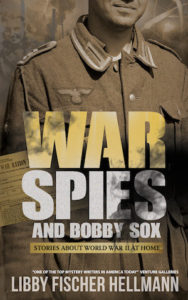 in recent history where there was such clarity between good and evil. It was a time where some people turned out to be heroes while others became cowards—or worse. So it presents a wonderful opportunity for complex character development. At the same time, though, I was intimidated at the prospect of writing about the war. So many rich, beautiful stories have already been written (NiGHTINGALE, ALL THE LIGHT WE CANNOT SEE, UNBROKEN, SARAH’S KEY, and more) I wondered what I could possibly add. A friend of mine, however, thought differently, and while she didn’t dare me, she did encourage me to write about the era. Eventually I took a deep breath and dived in. My caveat was to choose small pieces of the human “canvas,” since I couldn’t write about battles and military actions.
in recent history where there was such clarity between good and evil. It was a time where some people turned out to be heroes while others became cowards—or worse. So it presents a wonderful opportunity for complex character development. At the same time, though, I was intimidated at the prospect of writing about the war. So many rich, beautiful stories have already been written (NiGHTINGALE, ALL THE LIGHT WE CANNOT SEE, UNBROKEN, SARAH’S KEY, and more) I wondered what I could possibly add. A friend of mine, however, thought differently, and while she didn’t dare me, she did encourage me to write about the era. Eventually I took a deep breath and dived in. My caveat was to choose small pieces of the human “canvas,” since I couldn’t write about battles and military actions.
What’s your favorite scene in the book?
There are several. The scenes in Hyde Park near the U of Chicago were really fun to write, as was the description of the “Pile” (the first nuclear reactor) underneath Stagg Field. I also loved writing about the emotional tug of war in POW between Mary-Catherine and the two German soldiers. Lawndale, another South side setting, was fun to research, as I actually met a couple of “old-timers” who grew up there.
What I liked about your Lawndale story was the clash of cultures and class inside the Jewish community, which a lot of people under a certain age aren’t aware of. Good stuff. Where can we learn more about you and your work?
My Website: http://libbyhellmann.com
Amazon page: https://www.amazon.com/Libby-Fischer-Hellmann/e/B001HMMDZU/ref=dp_byline_cont_ebooks_1
Facebook: https://facebook.com/authorlibbyfischerhellmann
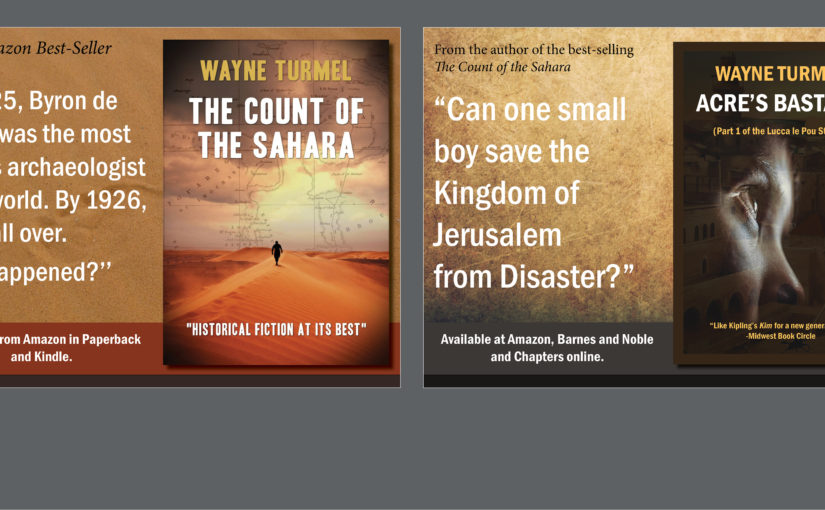
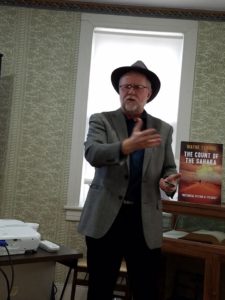 One of the nice things about constantly coming across other Historical Fiction writers, is being on their blogs, and getting to rattle on about stuff including my own work.
One of the nice things about constantly coming across other Historical Fiction writers, is being on their blogs, and getting to rattle on about stuff including my own work.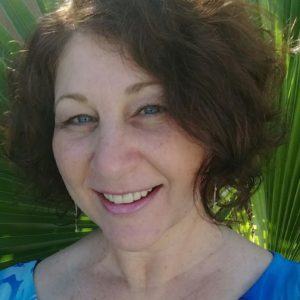 Mirta is a second generation Argentine; she was born in Buenos Aires in 1962 and immigrated to the United States that same year. Because of the unique fringe benefits provided by her father’s employer- Pan American Airlines- she returned to her native country frequently- growing up with “un pie acá, y un pie allá” (with one foot here and one foot there). Mirta’s self-proclaimed life’s career has been raising a family and creating a home, alongside her husband of over thirty years. She returned to the world of the gainfully employed late in life; currently in a position which doesn’t require one iota of dramatic flair – just common sense, organization and attention to detail. Rather than being self-deprecating, Mirta lightheartedly concedes that her paper pushing makes a number of people happy, as that bureaucratic busywork ensures that payroll is met and invoices are processed. Besides being an avid novel reader and a devoted Beatles fan, Mirta most enjoys singing choral music and researching family genealogy.
Mirta is a second generation Argentine; she was born in Buenos Aires in 1962 and immigrated to the United States that same year. Because of the unique fringe benefits provided by her father’s employer- Pan American Airlines- she returned to her native country frequently- growing up with “un pie acá, y un pie allá” (with one foot here and one foot there). Mirta’s self-proclaimed life’s career has been raising a family and creating a home, alongside her husband of over thirty years. She returned to the world of the gainfully employed late in life; currently in a position which doesn’t require one iota of dramatic flair – just common sense, organization and attention to detail. Rather than being self-deprecating, Mirta lightheartedly concedes that her paper pushing makes a number of people happy, as that bureaucratic busywork ensures that payroll is met and invoices are processed. Besides being an avid novel reader and a devoted Beatles fan, Mirta most enjoys singing choral music and researching family genealogy.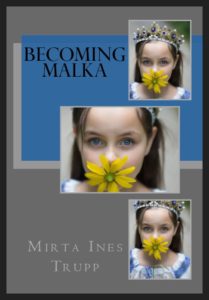
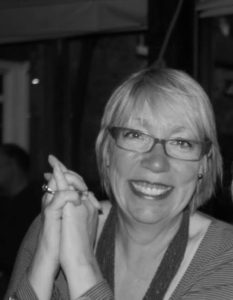 I live on the south coast of England – Kipling’s “Sussex by the Sea”, in Eastbourne, a seaside resort with a Victorian pier and a beautiful seafront bandstand built in 1936. I moved back here just over a year ago from London. I spent my teenage years in the town and always loved the South Downs and the sea – both of which are outside my windows and I can hear the screams of seagulls as I write this. I have used the town as the setting for my latest book, The Chalky Sea – although I had not planned to do that when I moved here.
I live on the south coast of England – Kipling’s “Sussex by the Sea”, in Eastbourne, a seaside resort with a Victorian pier and a beautiful seafront bandstand built in 1936. I moved back here just over a year ago from London. I spent my teenage years in the town and always loved the South Downs and the sea – both of which are outside my windows and I can hear the screams of seagulls as I write this. I have used the town as the setting for my latest book, The Chalky Sea – although I had not planned to do that when I moved here.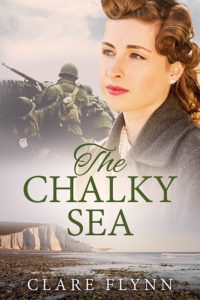



 Rick presently lives in northern Mississippi with his wife, Janet, six cats and a male Labrador retriever named Blondie.
Rick presently lives in northern Mississippi with his wife, Janet, six cats and a male Labrador retriever named Blondie.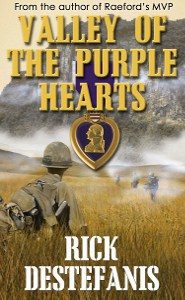
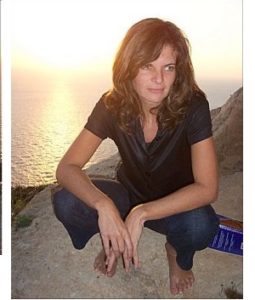 Nataša is an
Nataša is an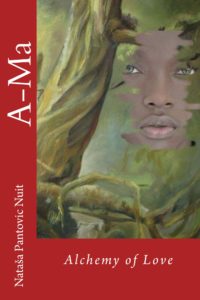 gun powder centuries before they came to Europe. Did you know that they possessed the most advanced Navy, yet they always focused on the trade with their neighbors, never went into frantic invasions of other continents. Reading about holocausts committed all around the world by Colonists powers around different continents (American Indians slaughter, Australian Aboriginals destruction, or crimes against New Zealand Maoris) all gave me an insight about how unfair was our world, and difficult our fight for justice, better world, and freedom. Within A-Ma we follow insights and subtle energy battles following lives of a group of enlightened souls who understood the prime importance for West and East wisdom sharing.
gun powder centuries before they came to Europe. Did you know that they possessed the most advanced Navy, yet they always focused on the trade with their neighbors, never went into frantic invasions of other continents. Reading about holocausts committed all around the world by Colonists powers around different continents (American Indians slaughter, Australian Aboriginals destruction, or crimes against New Zealand Maoris) all gave me an insight about how unfair was our world, and difficult our fight for justice, better world, and freedom. Within A-Ma we follow insights and subtle energy battles following lives of a group of enlightened souls who understood the prime importance for West and East wisdom sharing.